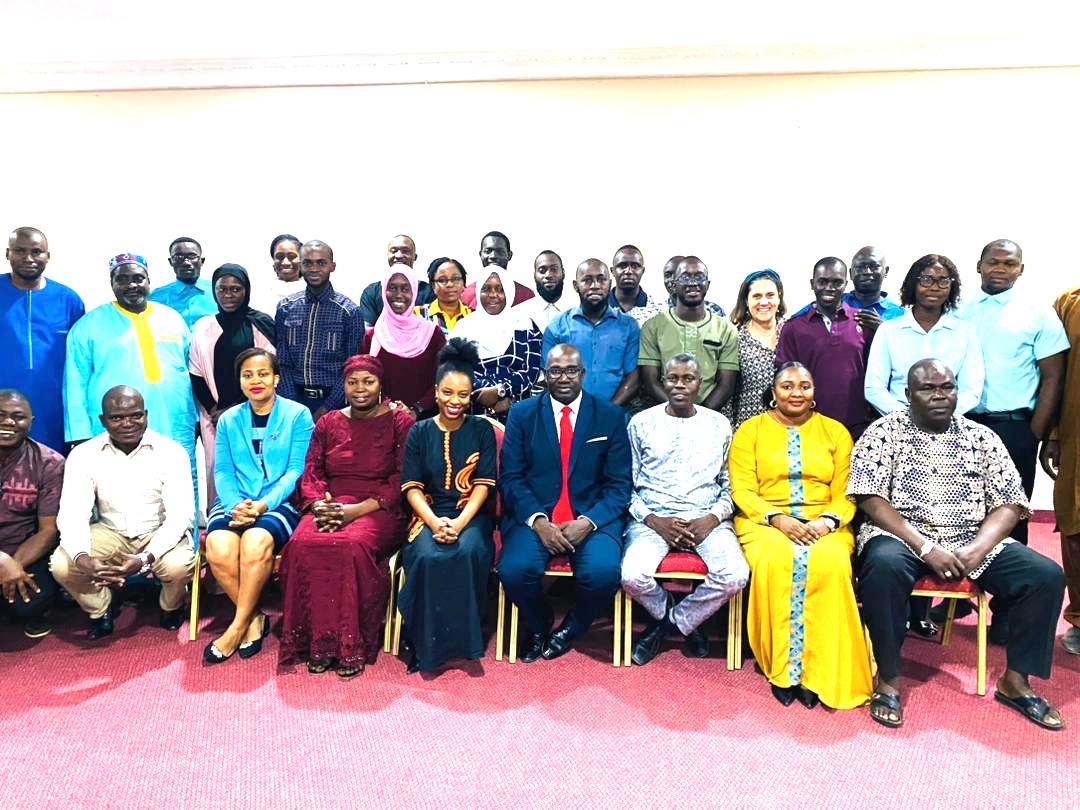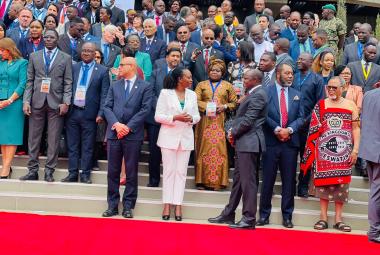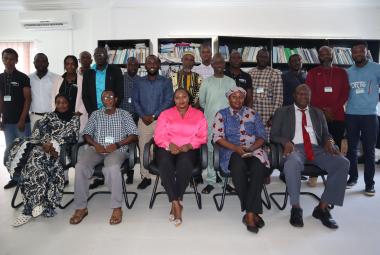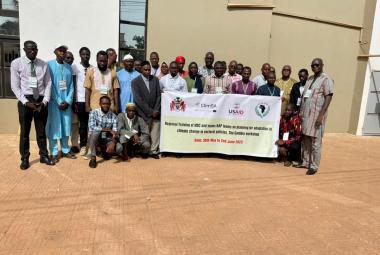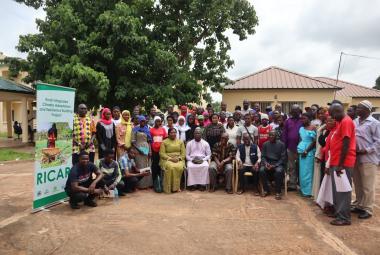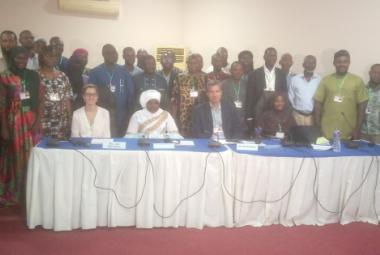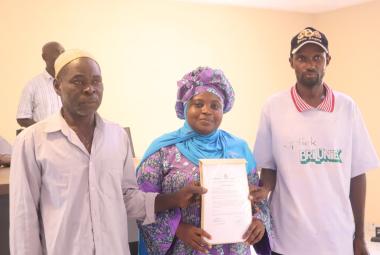The Ministry of Environment, Climate Change and Natural Resources through the Environment Resilience Project (ERDP) has organized a four-day retreat to assess the progress of the project, and develop a work plan and budget for 2023 at Ocean Bay hotel, Bakau.
ERDP retreat is an annual activity that brought together stakeholders and partners to assess the progress made, look at the challenges faced as well as to come up with solutions to address them, prepare a budget and work plan for 2023
Speaking at the opening ceremony, the Permanent Secretary of the Ministry of Environment, Climate Change and Natural Resource, Mr. Alieu Njie, highlighted that the retreat is a key factor in the successful implementation of the project.
PS Njie posited that the retreat has been happening since 2019, to serve as a mechanism for improving coordination, and enhancing sector performance. He said over the years it has evolved to become a tool for mutual accountability, transparency, implementation for development partners’ efficiency, and effectiveness, and the use of resources to maximize benefits for the Gambian people, and communities.
He said such an activity will help provide a common understanding among all stakeholders by identifying gaps that will result in finding recommendations that can emanate, and ensure the development of strategic plans for effective implementation, and serve as a guide; improve equity in resource distribution, and utilization of services, and effective financial protection.
PS Njie further argued that the activity will bring transformational change, especially in developmental gain, and take meaningful steps to zero hunger, poverty, and build lasting peace, and prosperity that will be supported by robust gender management, sustainable management of the natural resource, and the environment, and green economic growth.
ERDP project is a UNDP-funded project which aims to bring transformational change; more specifically, a change that protects Development gains and takes meaningful practical steps towards zero hunger, zero poverty, and zero carbon, to build lasting peace and prosperity for The Gambia as a highly vulnerable country to the impacts of climate change.
“The project intervention includes capacity building of national institutions, and communities focusing on identified game changer areas as multiple effects to promote growth, inclusiveness, and empowerment of women, youth, and the rural community. This will be archived through a focus on skills development, employment creation, income generating activities, and resilient building using an innovative approach, and technology to promote green jobs, renewable energy, value addition, and other climate interventions to sustain livelihoods.’’ PS Njie explained
He stated that the majority of the Gambians; 70% to 80% directly depend on natural resources, that is the goods and services provided by the aquatic biodiversity ecosystem. He further added that this has exerted tremendous risk pressure on natural resources thereby impacting negatively on the environmental resources. The dependency of the population on wood as the main source of domestic energy has contributed to deforestation, land degradation, loss of biodiversity, and soil fertility leading to the weak integration of environmental consideration into socio-economic development efforts.
However, despite challenges faced by the project due to Covid-19 and climate-related mishaps, the project was able to register significant achievements such as the successful completion of a solar ice plant, skill training for young girls on solar installation, food processing and preservation, poultry and sewing, agricultural garden with solar water pump system, building storage facility at Foni Jalokoto, provision of solar pump for a community in Chameng, CRR and provision of the energy-efficient cooking stove for women.
Mrs. Mariama Ndow Jarjue, Project Coordinator, ERDP advised the stakeholder to work hand in hand, share ideas and complement each other’s efforts for the successful implementation of the project.
PS Njie extended his sincere thanks and appreciation to UNDP and development partners for their financial support.
The 4-day retreat saw the presentations of the activities this year, group discussions, development of the budget, and work plan for next year.

